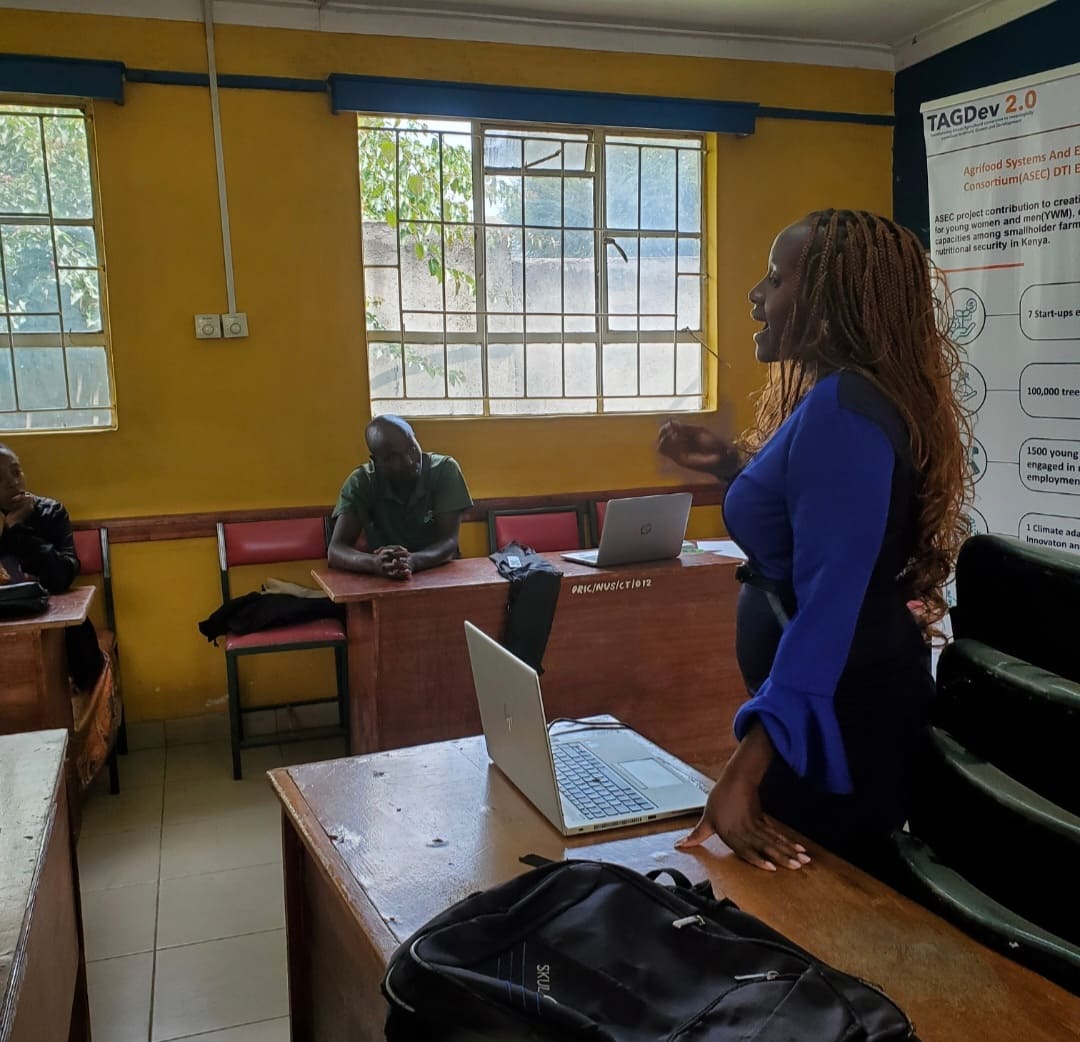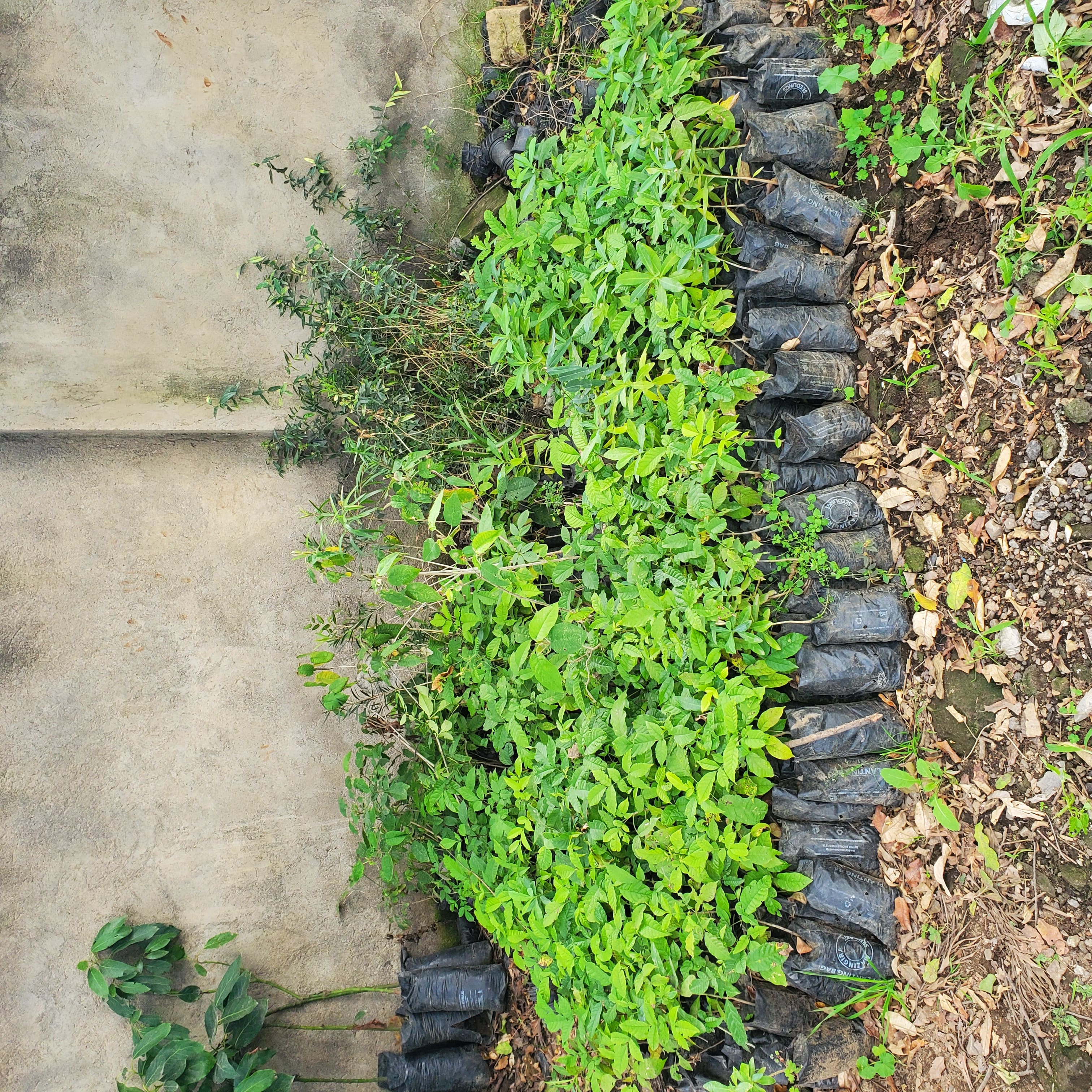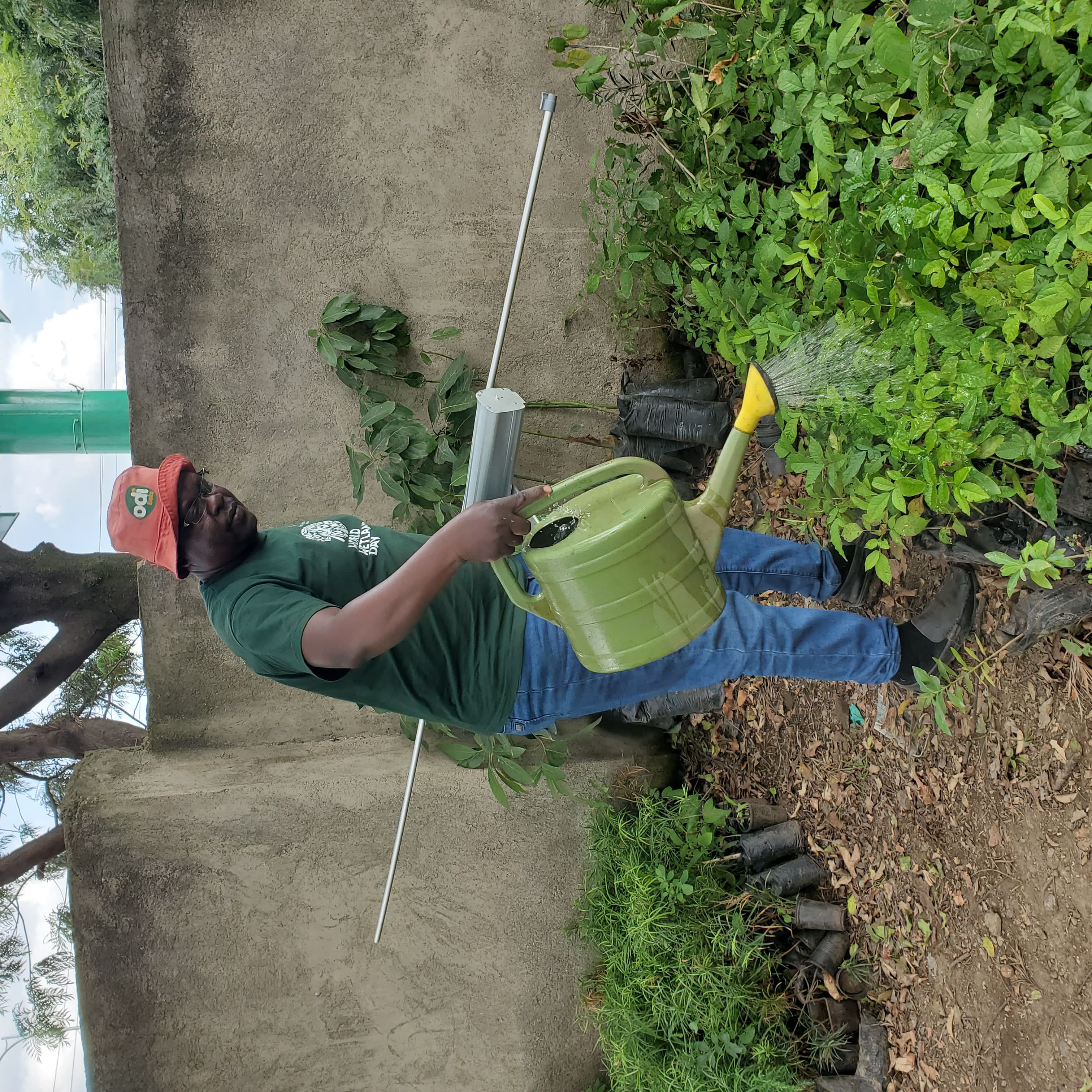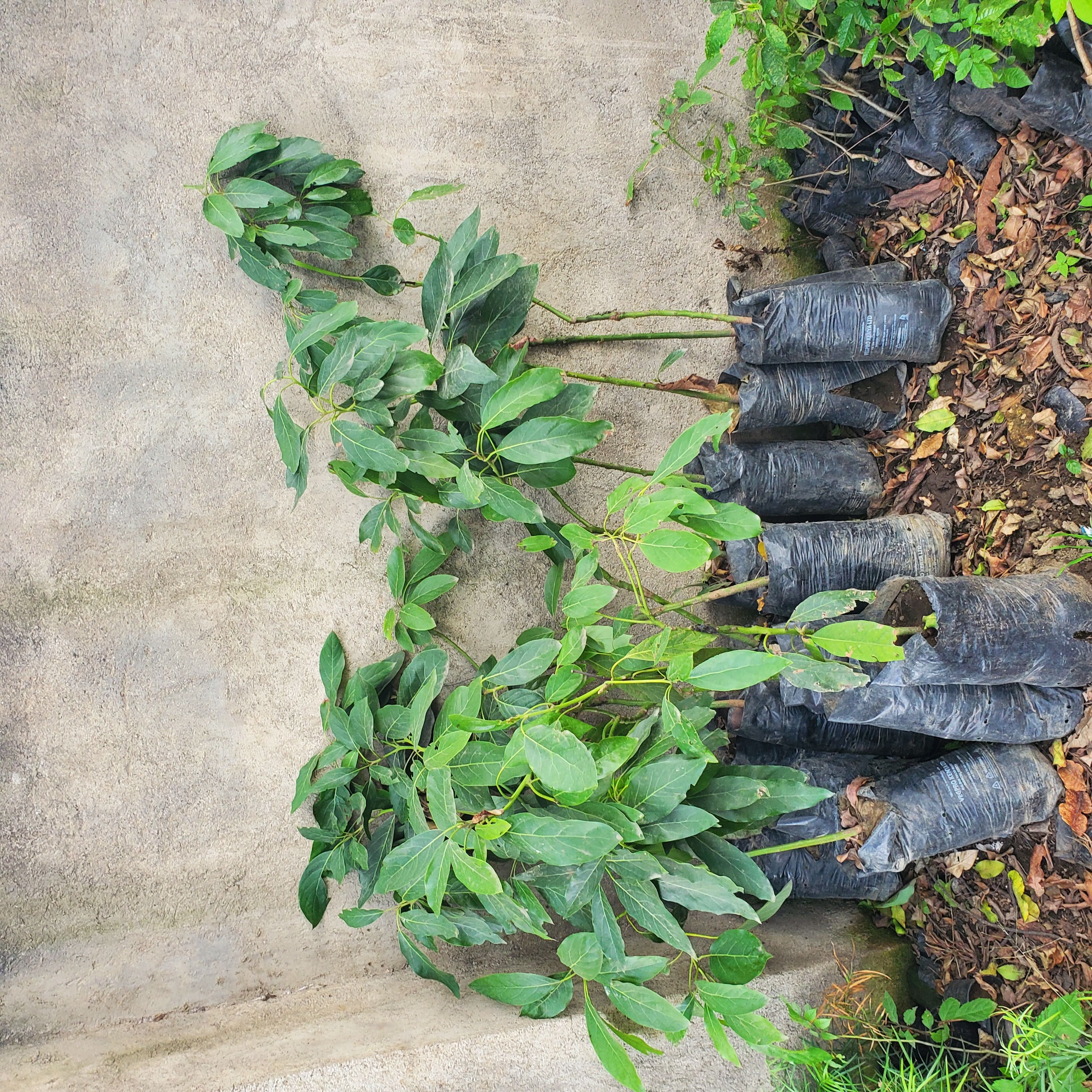On 4th and 5th September 2025, the Dairy Training Institute (DTI), under the Agri-food Systems and Entrepreneurship Consortium (ASEC) project, facilitated two community trainings on tree nursery establishment and management in Naivasha and Oljororok. These back-to-back sessions aimed to build local capacity in sustainable agroforestry and contribute to the project’s target of planting 20,000 fodder trees this year and 100,000 within four years.
The first training on 4th September was held at DRIC Hall, Naivasha, where 22 youth members from Team Climate Change Naivasha and Eagles Green Developers participated. The session was facilitated by Mr. Francis Kinuthia, who guided participants through nursery management concepts before leading them to the groups’ own nursery already hosting a variety of tree species—for practical exercises. Together, they prepared seedbeds and planted Sesbania and Leucaena seeds, with a total of 4kgs used (2kgs of each species).




The second training on 5th September took place at the CapYEI Training Hall, Oljoro Orok, facilitated by Mr. Moses Mathenge, CEO of Lake Olbolosat Community Conservation Groups. It brought together 25 leaders from Gifted Hands, Kasuku Group (comprising persons with disabilities), Karandi, Kamsumari, OCF, and CapYEI Mentor Group. Adopting a trainer-of-trainers approach, the session equipped officials with the knowledge and skills to cascade lessons to their members. In the practical session, participants also planted 4kgs of Sesbania and Leucaena seeds (2kgs each) at their nursery site.
Across the two trainings, a total of 8kgs of fodder tree seeds were planted. Both sessions emphasized nursery site selection, seed handling, watering, pest management, and record keeping, ensuring participants could practically apply classroom knowledge. Training communities in nursery management is vital because well-managed nurseries improve seedling survival, reduce costs, and ensure long-term environmental and economic benefits. By engaging youth, women, and marginalized groups, these initiatives also foster inclusivity and resilience. The Naivasha and Oljoro Orok trainings demonstrate that investing in community capacity is not only about planting trees but also about planting sustainability, food security, and hope for future generations.

